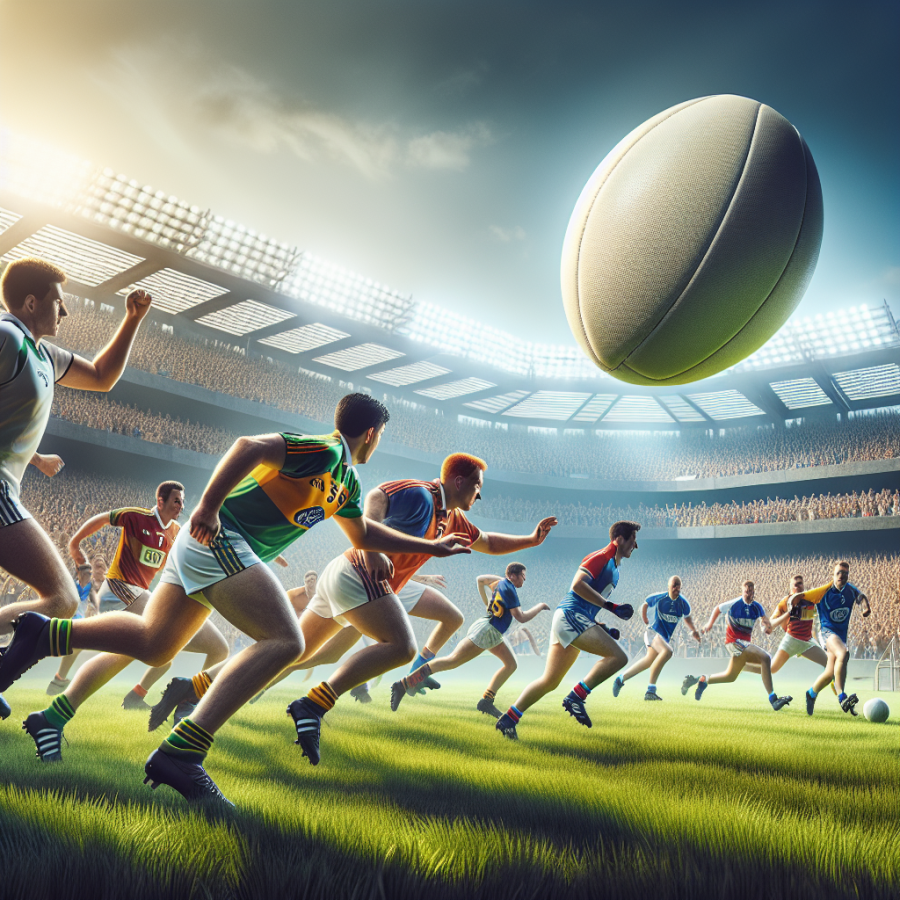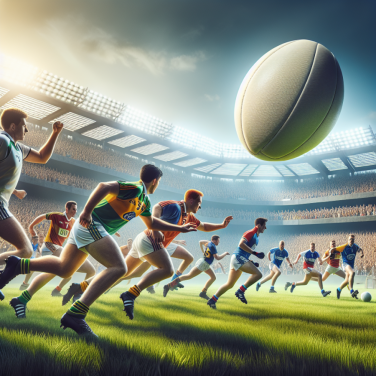Unraveling the Rich History and Traditions of Gaelic Football
Gaelic football, the pride of Ireland, is a sport enmeshed in a tapestry of history and tradition. This exhilarating game dates back centuries and is much more than a pastime—it's a cultural heartbeat that has thrived and survived through periods of profound change in Irish society.
Steeped in antiquity, the origins of Gaelic football are somewhat mythological and blend with the stories of the Celts, who are believed to have played similar games with a ball made of animal hide. It wasn't just a game; it was a display of prowess, agility, and warrior skills that were highly prized in ancient Celtic culture. Over time, these neighborhood contests grew in prominence, mirroring the shifting social and political landscapes of Ireland.
During the 1800s, as British influence augmented, traditional Irish pastimes faced suppression. Efforts to temper Irish culture resulted in a decline in the playing of native games. Yet, like the resilient spirit of its people, Gaelic football survived, predominantly due to its integral role in community cohesion and identity. Games were spirited events, knitting together the fabric of rural and urban communities alike.
The milestone event that formalized and safeguarded the future of Gaelic football came with the founding of the Gaelic Athletic Association (GAA) in 1884. The GAA was pivotal in standardizing rules that would differentiate it from other football games like soccer and rugby but also served as a cultural statement. The establishment of the GAA is a testament to the determination of the Irish people to preserve their unique sporting and cultural heritage, even as they were ushered into a modern era.
In the years that followed, the GAA began organizing official leagues and championships, with the All-Ireland Senior Football Championship becoming the pinnacle of Gaelic football achievement. The Sam Maguire Cup, awarded to the champions, is named in honor of a man who embodied the spirit of the Gaelic Athletic Association, playing a vital role in the Irish independence movement.
Gaelic football is deeply rooted in Ireland's education system, ensuring the legacy carries on with each passing generation. Schools across the nation participate in competitions, fostering a sense of community and attachment to local traditions from an early age. It's a rite of passage for many young Irish people to play for their school teams, dreaming of one day stepping onto the hallowed turf of Croke Park, the iconic home of Gaelic football.
Read also:
Exploring the Ancient Art of Bujinkan Ninjutsu Mastery
Gaelic Football Today: Preserving a Unique Irish Sporting Heritage
Gaelic football, one of the most cherished sports in Ireland, stands proudly as a preservation of Ireland's unique sporting heritage. The game, deeply rooted in Irish culture and history, is much more than just a sport—it's a symbol of national identity and community spirit. As an amateur sport, it thrives on the enthusiasm and dedication of its players, coaches, and the families that support them.
The structure of Gaelic football has greatly contributed to its enduring popularity and cultural significance. Governed by the Gaelic Athletic Association (GAA), the sport maintains its amateur status and ensures that players, often local heroes, play for the love of the game rather than for financial gain. This has fostered a strong sense of belonging, with parish pride at stake in every match, as players represent their local clubs with passion and honor.
In terms of gameplay, Gaelic football today continues to evolve, with the GAA constantly looking to improve and modernize the sport. However, the essence of the game remains unchanged. The blend of speed, skill, and physicality makes for a thrilling spectacle that often leaves spectators on the edge of their seats. The majestic high catches, the artful dodges, and the precision kicking are all elements of the sport that have been passed down through generations.
Today's coaches and players embrace modern training methods and sports science to push the boundaries of athleticism and skill. This professional approach to preparation and strategy coexists with the amateur ethos of the sport, creating a unique dynamic rarely seen in other sports around the world. Intense county-level competitions, like the All-Ireland Senior Football Championship, continue to draw huge crowds, with fans showing unwavering loyalty to their teams.
Youth engagement is also a significant aspect of preserving Gaelic football for future generations. The GAA's initiatives at the grassroots level ensure that children are engaged in the sport from a young age. This bodes well for the future, as these young players learn the nuances of the game, alongside values like teamwork, discipline, and resilience.
Moreover, the sport's social function cannot be overstated. Gaelic football matches serve as community gatherings, where stories are shared, friendships are formed, and the fabric of Irish culture is strengthened. The excitement of match day encapsulates a shared experience that resonates throughout towns and villages across the country.
Diaspora has also played a considerable role in spreading the appeal of Gaelic football worldwide.




